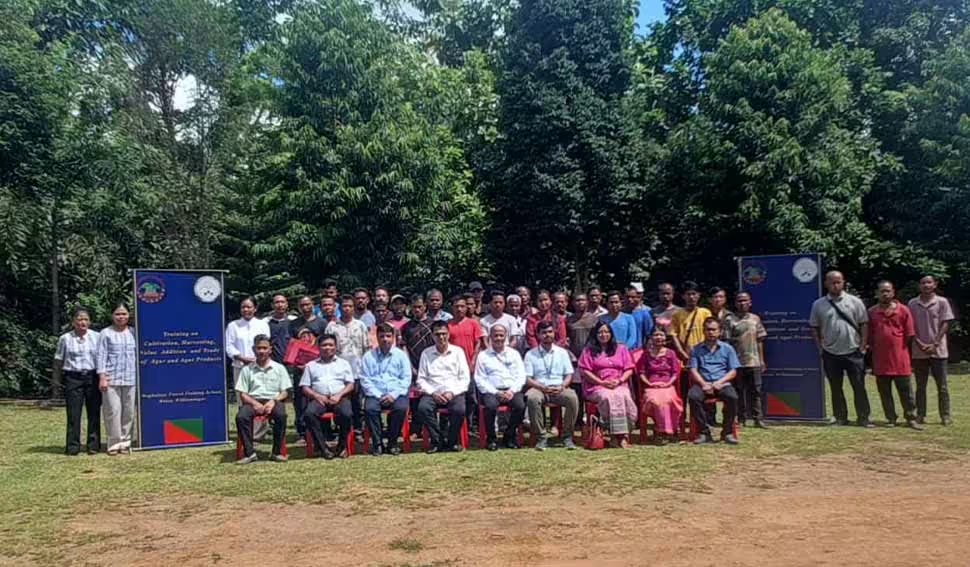Agarwood cultivation and trade boosted by new training initiative in Meghalaya

Meghalaya is poised to enhance its agarwood sector with a new training program designed to expand cultivation and improve management practices. Agarwood, a highly valued resin-infused wood from the tropical evergreen Agar tree, is renowned for its distinctive fragrance and medicinal properties. The resin accumulates in the tree’s stem and branches as an immune response to stress, making agarwood a precious commodity.
Agarwood’s ability to retain its fragrance over long periods makes it ideal for storage and long-distance trade, similar to precious stones and metals. Fine-grade agarwood is among the most expensive natural materials globally. Prices for good-quality agarwood chips range from Rs 80,000 to Rs 1,00,000 per kg, while agar oil prices vary between Rs 6 lakh and Rs 2 crore per kg, with a general range of Rs 10 to Rs 30 lakh per kg. In 2001, a large agar tree from Assam, fully infused with resin, was sold for over Rs 1 crore. High-value trees worth Rs 15 to Rs 30 lakh each are still found in Northeast India. A well-maintained one-hectare agar plantation, containing about 1,700 trees, has the potential to generate up to Rs 2 crore in a 15-year felling cycle.
To leverage this economic potential, the Forest and Environment Department, with support from the Meghalaya Basin Development Authority (MBDA), has launched a comprehensive training program for 1,200 farmers across 20 blocks with high agar cultivation potential. The program, held at the Meghalaya Forest Training School in Baiza near Williamnagar, includes practical and theoretical training on agarwood chip extraction, resin inoculation, and plantation management.
The training schedule, crafted with input from the Rain Forest Research Institute in Jorhat, includes both classroom sessions and field visits. The first batch of 50 farmers from Samanda Block strated from September 2, with the program expected to conclude by October 17, 2024.

This initiative aims to capitalize on Meghalaya’s favorable conditions for agarwood cultivation and significantly contribute to the state’s goal of becoming a $10 billion economy by 2028.

Leave a Reply